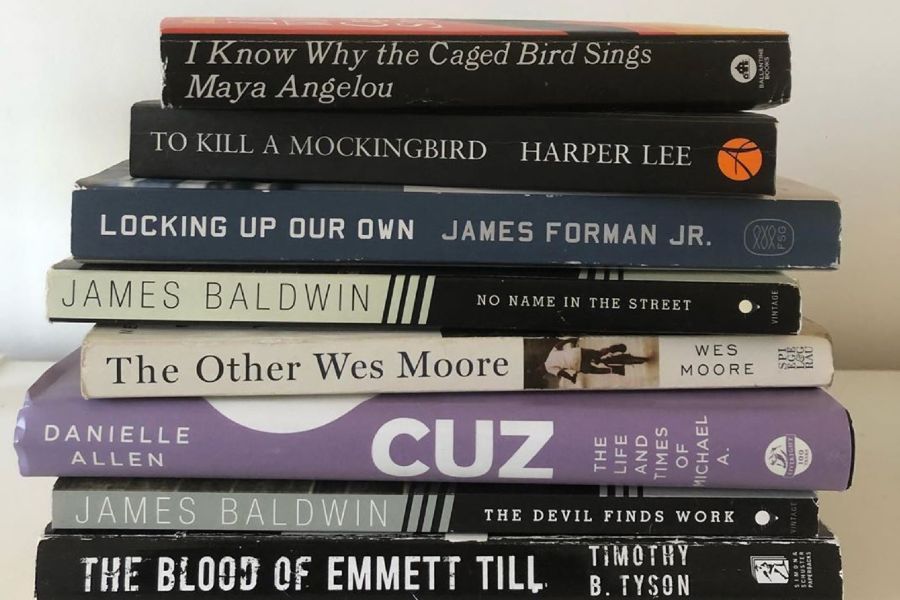
When we look at the progress of human rights and compassion through the centuries, literature comes to the fore. Unsurprisingly, there's a strong correlation between reading another's perspective and understanding it.
There's a reason books have been burned and forbidden by regimes throughout history. They are potent, magic, transformative. And we have the freedom to use them. Education is power. Information is control. Words, sentences, chapters are capable of transporting us into another mind - and opening ours.
We need to read about race, and racism. If you've seen the news but don't know what to do next to educate yourself - start here.
The below readings include those recommended by members of our community - online, and through conversation. Some recommendations referenced the works of Black Indigenous People of Colour in the USA, others here in Australia, and around the world. We have included them all with the acknowledgement that there is much to learn and understand. We can't thank you enough for your teaching and your contribution. This list is by no means comprehensive, but it's growing every day. If you have an addition, message or comment @russhmagazine.
The Fire Next Time
James Baldwin
Described by the New York Times Book Review as "sermon, ultimatum, confession, deposition, testament, and chronicle … all presented in searing, brilliant prose." This book contains two essays by the incomparable James Baldwin, both of which you need to read.
I Know Why The Caged Bird Sings
Maya Angelou
"Words mean more than what is set down on paper. It takes the human voice to infuse them with shades of deeper meaning." An essential work by Angelou, published in 1969, telling the story of the American writer and poet's early years.
Sister Outsider
Audre Lorde
"Guilt is not a response to anger; it is a response to one’s own actions or lack of action. If it leads to change then it can be useful, since it is then no longer guilt but the beginning of knowledge." By no means the only Audre Lorde book you should add to your list, but consider it a beginning. This collection of 15 essential essays and speeches addressing racism, sexism, ageism, homophobia and class from the revolutionary and self-proclaimed "black, lesbian, mother, warrior, poet".
The Uluru Statement from the Heart
Delegates of the First Nations National Constitutional Convention
"We, gathered at the 2017 National Constitutional Convention, coming from all points of the southern sky, make this statement from the heart ..." A call for the establishment of a First Nations Voice enshrined in the Constitution. Absolutely essential reading for all Australians.
Growing Up Aboriginal in Australia
Anita Heiss (ed.)
What is it like to grow up Aboriginal in Australia? This anthology compiled by Anita Heiss gathers a diversity of voices who can attest to their experience.
Talking to My Country
Stan Grant
A conversation about Country, inter-generational trauma, how we can be better. Journalist and Wiradjuri man Stan Grant's 2016 meditation on Australian identity exposes what has been, and asks what could be.
Beloved
Toni Morrison
Morrison's Pulitzer-winning novel was inspired by the real life of Margaret Garner, an African American woman who escaped slavery in Kentucky in 1856, and the heartbreaking story of her capture - giving voice to silences of the past.
Black Skin, White Masks
Frantz Fanon
Martinican psychiatrist Frantz Fanon's historical critique on the construction of identity was first published in 1952. It's influence and vivid power endures.
Americanah
Chimamanda Ngozi Adichie
From the writer of We Should All Be Feminists, Nigeria-born writer Chimamanda Ngozi Adichie. Americanah tells the story of a Nigerian woman named Ifemelu, who leaves her home for American. With many of her experiences based on Adichie's own, this novel examines what it means to be black in Africa, America and Britain.
The Other Wes Moore
Wes Moore
"The chilling truth is that his story could have been mine. The tragedy is that my story could have been his." Rhodes Scholar, decorated veteran and white house fellow Wes Moore tells his own story and that of another Wes Moore - a convicted murderer serving a life sentence - who grew up blocks away in a similar Baltimore neighbourhood. It becomes a meditation on a generation of boys trying to find their way in a hostile world.
Freedom is a Constant Struggle
Angela Davis
"A collection of essays, interviews and speeches by activist and scholar Angela Y. Davis, a tireless voice for the oppressed and exploited for decades. Freedom is a Constant Struggle traverses black feminism, intersectionality and prison abolitionism, asking readers to envision and build the movement for human liberation.
Further readings and resources, recommended by our community
Decolonizing Solidarity, Clare Land
Sweatshop Women: Volume Two, Winnie Dunn (ed.)
How to be an Antiracist, Ibram X. Kendi
Locking Up Our Own, James Forman Junior
No Name in the Street, James Baldwin
Cuz, Danielle Allen
The Devil Finds Work, James Baldwin
The Blood of Emmett Till, Timothy B. Tyson
The works of Roxane Gay
1619 (podcast), The New York Times
Welcome to Country, Marcia Langton
Letter from a Birmingham Jail, Dr Martin Luther King Jr
Utopia (Documentary)
Imagery via Instagram @sophiekoella



